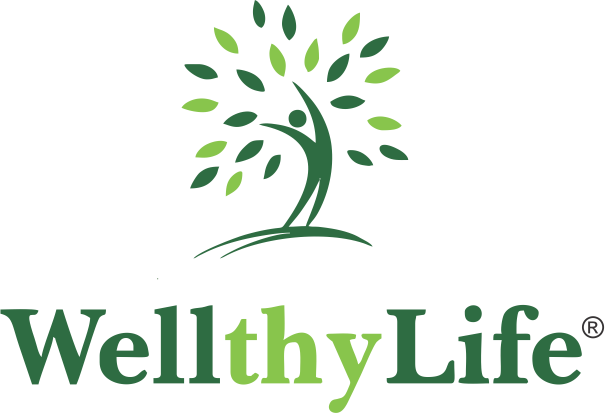What is Ginkgo biloba good for? (Everything you need to know)
Recent Post
Weight gain without overeating: is
Feb 15, 2023
Neem For Diabetes: 6 Researched
Nov 03, 2022
Do you know the most
Nov 02, 2022
Start Eating These 7 Fruits
Oct 28, 2022

Dr. Rajesh Singh
Wellness Strategist
Aug 10, 2022
“To observe attentively is to remember distinctly.”
-Edgar Allan Poe
Edgar Allan Poe’s quote truly expresses the significance of memory. Many times, school-going students pay full attention to the concepts taught in class yet their brain fails to retain them.
Similarly, corporations have reported only 36% of their employees are truly engaged in work.
There arrives the concept of working memory. It defines the capabilities of your brain to process and remember instructions that are required in both academic and corporate settings.
If you believe medical experts, optimum enhancement of brain memory in both settings is quite doable. That is what Ginkgo biloba is good for.
But before we move on to how you should use Ginkgo biloba, let’s first talk about what Ginkgo biloba is.
What is Ginkgo biloba?
Ginkgo biloba, also known as the maidenhair tree, first appeared over 290 million years ago. It is a species of native China with large trees, angular crowns, and erratic branches.
These trees easily adapt to the urban environment and effortlessly tolerate pollution. When Hiroshima was under atomic attack, Gingko trees were part of a rare lot to survive. In fact, it became the official tree of the Japanese capital, Tokyo.
For its potent healing properties, Ginkgo has been a part of traditional medicine for centuries. Now it is grown worldwide to prepare extracts of ginkgo biloba from dried green leaves of the maidenhair tree.
What is Ginkgo biloba used for?
Sometimes referred to as a living fossil, Ginkgo biloba has an ancient history of its use for brain-related functions.
Though it contains more than 40 chemical compounds, only two compounds have medicinal properties namely flavonoids and terpenoids. And because of these compounds, Ginkgo biloba works as an antioxidant and neutralises the damaging effects of free radicals.
Free radicals are highly reactive molecules that damage the normal metabolic functions of your body. Many diseases such as Parkinson's and Alzheimer’s are closely connected to oxidative stress. This stress occurs when free radicals overpower the functioning of antioxidants present in your body.
In such a case, the antioxidant properties of Ginkgo biloba effectively destroy free radicals and help in strengthening the protective mechanism of cells.
Who can use it?
- Students who are finding it difficult to memorise their syllabus.
- Working professionals who are juggling between various projects and finding it difficult to retain crucial information
- Those suffering from Alzheimer’s dementia
Benefits of Ginkgo biloba
Because of its highly impressive properties, Ginkgo biloba is consumed for a variety of reasons.
Here are the 8 benefits of Ginkgo biloba:
Memory Enhancement

A clinical trial conducted on Alzheimer’s dementia confirms the efficacy of Ginkgo biloba in treating dementia. It proved that extracts of Ginkgo biloba improve thinking capabilities and memory retention in individuals.
Improve Your Brain Health

Ginkgo plays a significant role in the operation of neurotransmitters present in the brain and positively impacts the cognitive processing speed of individuals.
Ginkgo Biloba is an excellent source of antioxidants that promotes the dilation of blood vessels. This process improves blood flow to the brain and increases mental performance.
As individuals grow older, brain nerves go weaker. Research conducted on elderly people suggests that Ginkgo essentially increases mental performance in healthy individuals and their thinking skills perform in high order.
Protect Your Heart Health
A 2007 research documented regulation of blood flow by Ginkgo extracts in the elderly population. Because of its anti-inflammatory properties, it also reduces the chances of heart attacks and strokes in elderly people.
Relieves Anxiety

Anxiety and clinical depression is common now. Anxiety is an indication of stress and fear faced internally. When faced with hectic routines, individuals face a great deal of stress. There are ways to overcome depression and Ginkgo Biloba also is a great solution.
A study conducted in 2007 concludes the role of Ginkgo biloba extracts on anxiety. By improving your mental performance and ability to deal with stress, ginkgo biloba reduces anxiety.
Supports Eye Health
Thus, ginkgo is a great supplement to increase your vision capacity and slows down the progression of degenerative eye diseases.
Fights Inflammation
Though inflammation is a body’s natural response to foreign invaders, excessive inflammation can damage the body's tissues and DNA.
Like curcumin or turmeric in India and other asian countries Ginkgo biloba has been widely used to treat inflammation in a variety of diseases and has shown impressive results in the following diseases: Cancer, heart disease, stroke, arthritis, and irritable bowel disease (IBD)
A research conducted in 2013 reveals strong anti-inflammatory properties of Ginkgo biloba that were helpful in reversing joint degenerative disease.
In traditional Chinese medicine, ginkgo was a popular herb to treat migraine conditions.
When your headache results from stress, ginkgo’s anti-inflammatory, and antioxidant properties deliver exceptional results. Thus, based on the root cause of headaches, you can consider using ginkgo extracts to treat headaches.
There can be many root causes of depression. When it is a result of stress, ginkgo biloba has shown promising results.
A research was conducted on mice who received ginkgo supplements post an unavoidable stressful situation. He was emotionally less affected by stress than the one who didn’t receive ginkgo biloba.
Animal study, therefore, suggests that ginkgo has the ability to produce neuroprotective chemicals and treats symptoms of depression like stress and anxiety.
How to use Ginkgo biloba
Ginkgo extracts are available for consumption in various forms:
- The most prominent way to take ginkgo biloba extracts is in the form of tablets.
- You can have it in capsule form.
- Liquid extracts are another effective way to add ginkgo to your daily diet.
- Lastly, few individuals prefer taking the benefits of ginkgo to their bodies by adding dried leaves of Ginkgo to their teas.
Dose of Ginkgo biloba
The dosage of Ginkgo biloba differs from individual to individual. It depends on factors like your age, weight, objective to take ginkgo, and wellness routine.
To observe clinically proven effects on memory, heart, and brain, it is recommended to take 240-600 mg of ginkgo daily. Based on the results you desire, you can increase and decrease your dosage accordingly. Take the help of a physician to decide the doses on your behalf.
Ginkgo biloba with other herbs:
Ashwagandha
Ashwagandha is an evergreen shrub native to India and Southeast Asia. For thousands of years, its extracts have been used to treat a variety of conditions.
It is best known for its ability to reverse stress. A 2019 study concluded Ashwagandha is an excellent supplement to reduce stress and symptoms of anxiety.
In Ayurveda, it has been used often to aid memory and cognition. Research published in 2019 proved that Ashwagandha improves cognitive functions, especially in the elderly population.
Another study conducted in 2020 tested the efficacy of Ashwagandha for chronic inflammatory diseases. It concluded the therapeutic potential of Ashwagandha. Its anti-inflammatory properties, in fact, handle the soreness of arthritis and other painful swellings.
As an excellent antioxidant, these extracts work against cancer cells growing in your lungs, breast, colon, and nervous system without damaging the normal cells.
Now since Ashwagandha is a well-tolerated herb, it has minimal side effects and you must consider making these extracts a part of your diet.
In fact, using Ginkgo biloba and Ashwagandha extracts together significantly reduces anxiety symptoms, enhances cognition, improves your mood and sleeping patterns.
Brahmi (Bacopa monnieri)
Brahmi is another creeping herb native to India. Being a pious herb, it is commonly found in Haridwar and spread all around the land it occupies. It has a rich heritage that makes this herb an interesting study for a variety of diseases.
Your body requires antioxidants to protect cells from the damage caused by free radicals. Brahmi is a powerful antioxidant whose leaves were used in Ayurveda for the following ailments: heart, cancer, stroke, respiratory diseases, arthritis, and immune deficiency.
The cooling properties of Brahmi reduce stress and anxiety by regulating hormones involved with the stress response.
Another serious health concern is high blood pressure. A 2011 study concludes Brahmi reduces blood pressure levels and keeps your heart in check.
Additionally, Brahmi enhances brain functions and boosts your memory. A 12-week study on human subjects revealed that the daily consumption of Brahmi herb improves learning rate, speed of processing visual information and memory.
Based on current findings, it would be right to say that Brahmi and Ginkgo biloba together have a bigger role to play. Together, they’ll speed up your cognitive functions and learning rate. For better focus and concentration, you can totally vouch on both of these herbs. In fact, they’ll significantly reduce your stress hormones and will calm your brain cells down.
Should you use Ginkgo Biloba, Ashwagandha and Brahmi together?
All three of them contain flavonoids. Studies suggest that flavonoids have a role to play in protecting your heart, nerves, blood vessels and retina.
When used together, Ginkgo, Ashwagandha and Brahmi increase brain chemicals that are directly involved in engaging you with thinking and learning activities.
Being a powerhouse of antioxidants and anti-inflammatory properties, three of them will make a high-potency memory supplement. Thus, it will be right to say that these three extracts work wonders in improving brain focus and concentration.
To ease out the procedure of finding fresh extracts of all three herbs and mixing their extracts, GoYNG has a powerful brain herb supplement for people desiring strong memory. It contains natural extracts of all three herbs (Ginkgo Biloba, Ashwagandha and Brahmi), blended into gluten-free tablets. Check out GoYNG’s Ginkgo biloba tablets for memory, focus and concentration here.
Possible Side Effects of Ginkgo biloba
Since ginkgo biloba extracts are prepared from dried leaves of ginkgo trees, they hardly pass on any side effects.
In rare cases, the following side effects may be triggered by ginkgo biloba: Inflammation, gastrointestinal discomfort and other digestive problems.
Below mentioned are the precautions that you must keep a track of:
- Pregnant and lactating women must consult their gynaecologist before the consumption of Ginkgo extracts.
In case you’re scared to take a chance, go slow and take Ginkgo biloba extracts in small amounts. Once you’re sure that your body has assimilated ginkgo extracts effectively, take a leap of faith and consume ginkgo biloba supplements in the required quantities.
Conclusion
Ginkgo biloba is widely used as a herbal supplement because of its exemplary anti-inflammatory and antioxidant properties. To derive potent benefits of ginkgo biloba for memory, focus and concentration, you should take it with Ashwagandha and Brahmi extracts. Are you ready to step into healthy living?
I hope this blog has helped you find answers to what ginkgo biloba is good for. Do mention in the comments, which of the benefits do you wish to avail from ginkgo biloba extracts.
FAQs
Practise cognitive skill exercises such as attention and processing speed. A nalanced diet containing fresh fruits, vegetables and fatty fishes fights memory loss and improves your memory retention.
Eating a balanced diet, rich in fruits and vegetables helps. Nuts, blueberries, tomatoes, broccoli, soy, dark chocolates and spinach are suggested to obtain brain-boosting vitamins and minerals.
Ginkgo biloba is a powerful herb that has a role to play in improving memory and concentration. Ginkgo Biloba supplements are best for cognitive skills and a healthy brain.
Yes! Ginkgo biloba was part of traditional Chinese medicine for more than 1000 years. In western culture, studies have proved the efficacy of ginkgo biloba for memory enhancement and better concentration.
Ginkgo Biloba supplements are best to impart powerful cognitive skills. Rich in antioxidants, these extracts not only improve blood circulation in the brain but also fasten your ability to process visual information.
The decision to take ginkgo biloba in the morning or at night depends on your objective behind consuming ginkgo extracts.
Take it in the morning to reduce anxiety, blood sugar levels and PMS symptoms.
Take it at night if you want to improve your sleep pattern.
GoYNG’s Ginkgo Biloba supplement is an all vegan formula and contains magic of three natural herbs namely Ginkgo Biloba, Ashwagandha and Brahim. Rich in antioxidants, it works best for memory enhancement and better brain focus.
Here are the possible side effects of ginkgo biloba extracts:
- Nausea
- Dizziness
- Inflammation
- Diarrhoea
- Allergic skin reactions
- Headaches
- Muscle Weakness
You can avoid undesirable side effects by never consuming ginkgo supplements in place of medications prescribed by your healthcare professional.
Following should consult their physician and get their doses checked:
- Patients with diabetes
- Pregnant Women
- Nursing Women
- Those with medical history pertaining to brain related functions
Following should avoid taking Ginkgo biloba:
- Children below the age of 13
- Patients with bleeding disorders
- People taking blood thinners
- Those with epilepsy
Yes! Botanical extracts of Ginkgo when taken with Ashwagandha and Brahmi calm the brain cells and boost memory.
← Older Post Newer Post →
© 2022, WellthyLife. All Rights Reserved.








